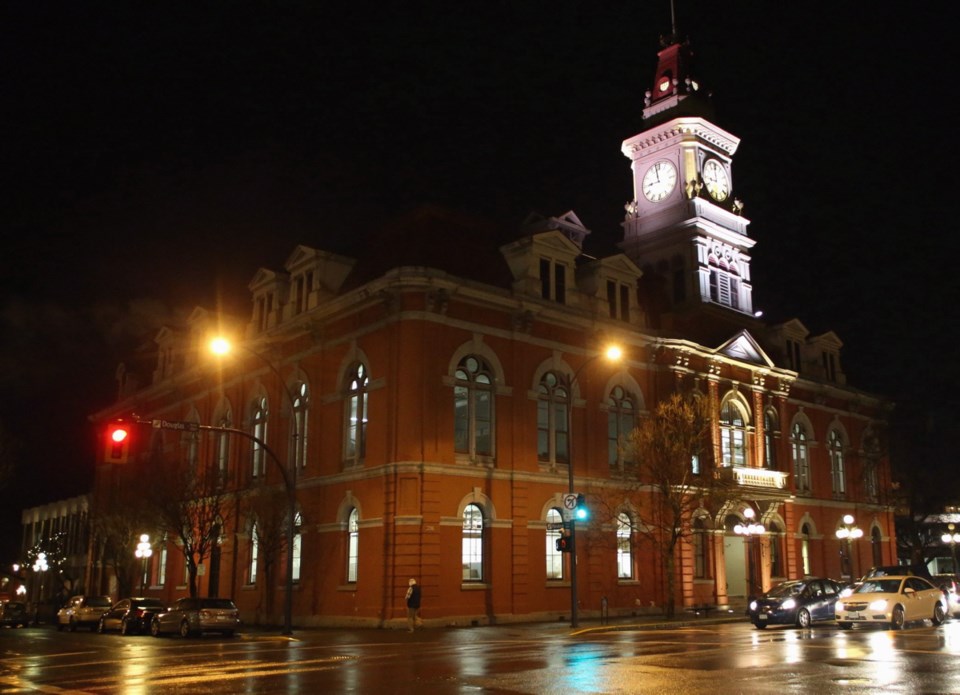Due to the COVID-19 crisis, municipalities across the province are under increasing financial stress. Staff at Victoria city hall estimate revenues losses in the neighbourhood of $20 million during the year ahead. Much of this is due to a steep decline in parking fees, and closure of the Victoria Conference Centre, which usually brings in about $3.5 million.
In response, staff are recommending a series of projects be delayed, including pathway upgrades, bus-shelter installation and traffic-signal upgrades.
However, these projected revenue losses may very well represent a significant underestimate of the true COVID-19 impact. Transport Canada has placed cruise-ship arrivals on hold until at least July 1, but it’s hard to imagine a return to the usual number of visits any time soon. This means a significant loss to the local business community.
The tourist season, long a staple of the Greater Victoria economy, looks equally vulnerable, with local hotels already hard-hit.
And some small businesses forced to close due to the outbreak might not reopen. Yet business property taxes are a major source of revenue for every municipality. It might take years for that revenue base to rebuild.
Responding to this financial crisis, the province has given city councils permission to run deficits, something that was previously forbidden. B.C. is the first province in Canada to take such a step.
Yet that permission extends only to the current year. Municipal Affairs Minister Selina Robinson has made clear that budgets must return to a balance position in 2021.
On the face of it, this appears nearly impossible, unless one of two things happens. Municipalities can raise taxes to make up the lost revenue, or the province can offer bailouts in the form of ongoing subsidies.
The first of these would be hugely unpopular. Residents who have lost their jobs are already struggling with rent or mortgage payments. A whopping tax increase, and it may have to be whopping to fill the hole, would only make things worse.
But can the province afford the kind of ongoing bailouts that would be necessary? Vancouver Mayor Kennedy Stewart has asked for $200 million to replace lost revenues. If assistance on that scale were provided to local governments provincewide, it would cost more than $1 billion.
Yet it’s already clear Finance Minister Carole James cannot balance her own budget, as plans to prop up the economy with additional spending will swamp her small surplus.
In effect, it seems inevitable that this is not a temporary predicament. Nor is it reasonable to suppose the province’s smaller municipalities, some with just a few hundred residents, can manage on their own. It will take sophisticated modelling and management expertise to match existing services with the new financial reality.
One obvious answer is amalgamation. There is enormous wastage in maintaining 162 separate local governments, every one with its own overhead and duplicate bureaucracies.
Yet this idea has met with resistance each time it has been raised. Just last week, Saanich Mayor Fred Haynes tabled a motion to pull out of a previously agreed study of amalgamation with Victoria. The explanation given was the COVID-19 crisis, exactly the reason this study should proceed.
Nevertheless, if mergers aren’t politically possible, something forward-looking must be done. We cannot simply kick this can down the road and hope for a happy ending.
Premier John Horgan has already announced an Economic Recovery Task Force to provide expert advice on rebuilding the business community.
We’re usually not a fan of task forces or commissions. They are too often a substitute for action.
But in this instance, it does seem a task force on reinventing local government is warranted. The current model has been in place for more than a century, with little done about keeping it up to date.
Of course, setting up such a task force would only be useful if the province were willing to act on its recommendations, some of which will, no doubt, generate resistance.
But dawdling our way through the year, then finding things are no better in 2021, is simply not an option.



